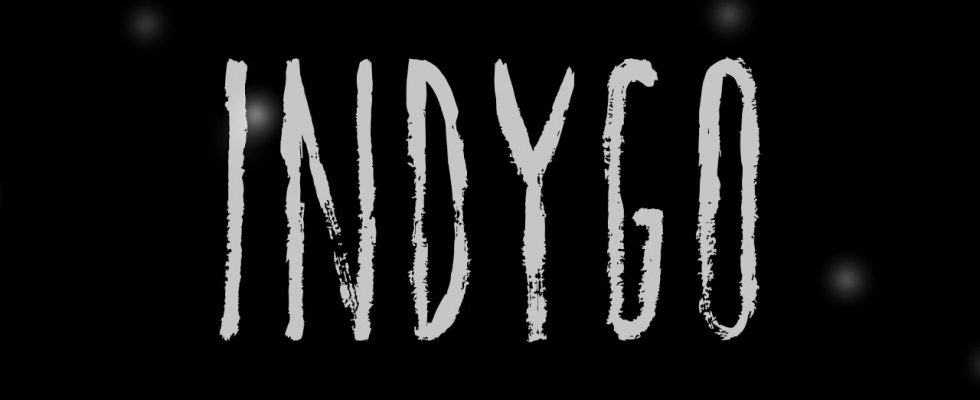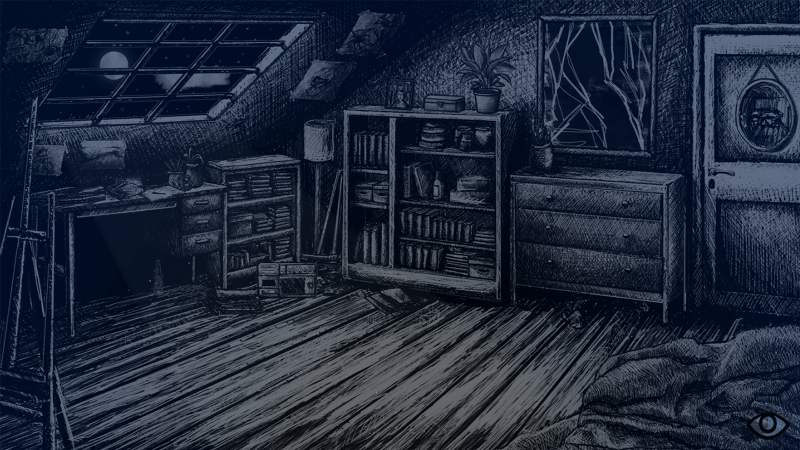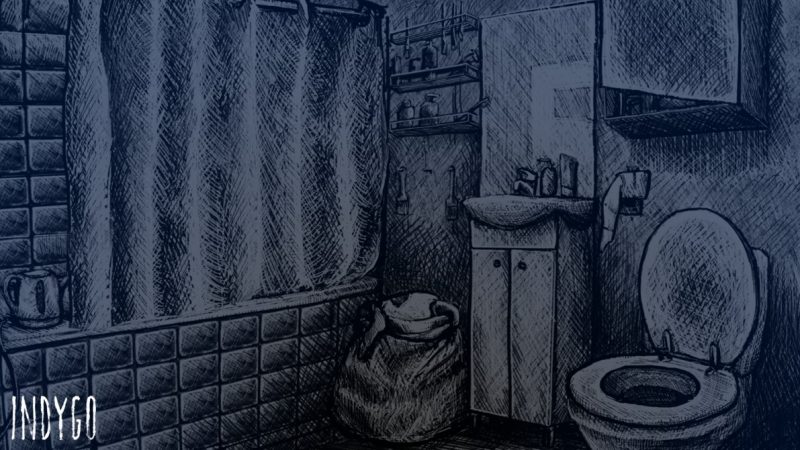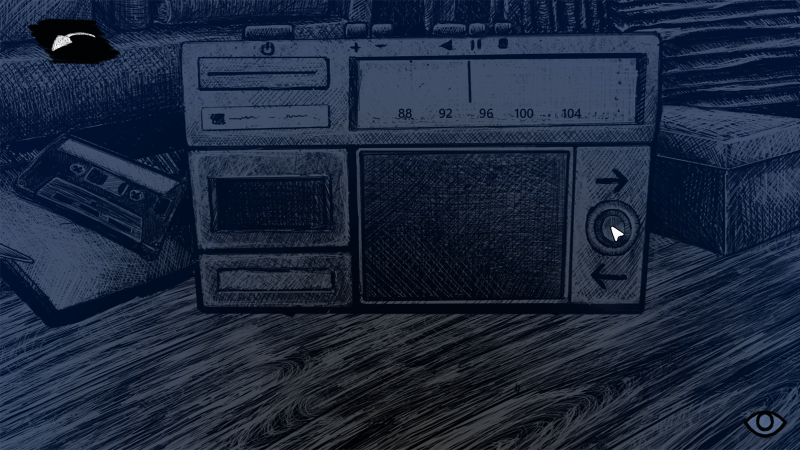Indygo is a point and click narrative title that aims to tell a story about a man with depression who resolves to lock himself away from the world, or more specifically other people. Developed by Pigmentum Game Studio and published by Fat Dog Games, Indygo is releasing tomorrow on Steam. I played this title through with someone who suffers from depression and we shared our thoughts on it before I wrote this review.
The story follows a painter who has decided to isolate himself in his atelier (for the less privileged that’s a painter’s workshop) and focuses on his day to day struggles with his mood disorder and his relationship his partner. She lives with him and seemingly cares for and cleans up after him, despite their interactions seemingly reduced to the few times she brings him food and the occasional written letter.
Each “puzzle” typically boils down to a scavenger hunt and tends to be bookmarked by a diary entry and a personal letter to start the day and a mundane choice, such as whether to smoke or not, at the end. You’re also given the choice in how to respond to each letter and Indygo borrows a trick from Depression Quest in removing options simply because the main character doesn’t have the motivation to respond that way. It’s an effective technique, even if it is second hand. The game resolves in a number of different endings depending on the choices you make throughout.
I think more could have been done mechanically with Indygo, the scavenger hunts don’t feel like they are intentionally boring but they are. There’s no real puzzle element here, despite the game advertising itself as such, and it would have been a more interesting experience if it were simply about the characters choices. It’s difficult to imagine most players wanting to experience game that really did try to convey a sense of lacking motivation but if that’s what the developers were going for I don’t think they really succeeded.
It is presented in a hand drawn ink-on-paper style that sticks rigidly to a messy, dark blue visual aesthetic. It captures a sense of melancholy and renders everything as uninviting and uninteresting. Despite being a hand drawn affair the game really isn’t beautiful. Even literal artwork within the game, all apparently created by the main character before his battle with depression, is drab and unpleasant. Colours have been stripped out of the world and whether intentional or not the presentation manages to convey a sense of real misery that the writing tries and fails to do.
That writing is patchy. The narrative itself doesn’t venture much past the relationship the main character has with his partner, which is not so much a problem but does limit our insight into their lives beyond the personal. It’s all presented through his diary and a series of letters between them, with a couple of letters from his doctor also. It’s awfully overwritten and with full voice work attached to each letter and diary, hearing it out loud makes it hard to imagine these people as being real. We have never in our lives heard a doctor be so informal, let alone a psychiatrist communicating with a patient. It pulled us out of that world in a snap.
The characters are insufferable, which could be the fault of the voice work, but the way they communicate between each other makes them seem so self involved it’s hard to empathise with either’s situation. The main characters voice actor did seem change from frustrated and irritable to unemphatic and tired as the narrative moved forward. And in general the writing seemed to improve towards the end of the game, which seemed to reflect how depression can change people over time.
Indygo was created by a Polish studio and I think that might account for some of the general language oddities we noticed. It’s an interesting experience and I’ll always welcome more attempts to tackle mental health issues in interactive fiction but it’s flaws leave something to be desired. Ultimately, though, Indygo’s biggest problem might have been my expectations.




